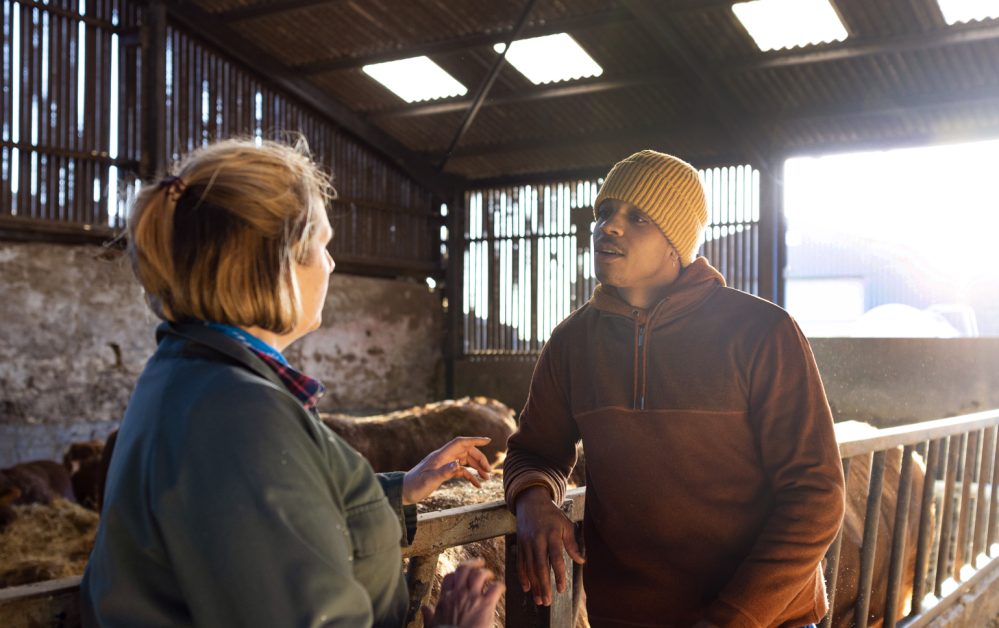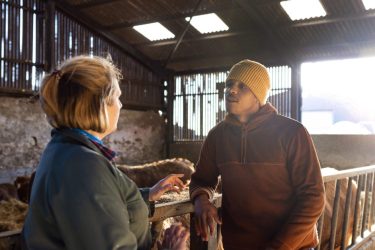The results are yet to be finalised but there is little doubt that the 2022-23 trading year will be a record one in terms of UK dairy farm profits. The unprecedented milk price volatility, allied with widespread evidence of improved technical performance on UK dairy farms has meant that those who have made the journey this far have enjoyed a year that they will never forget.
However, what goes up usually comes down. It is likely that farm businesses will be viewing the coming trading period with caution, after recent well documented milk price falls.
Potential cash flow woes for milk farms
Generating a significant taxable profit in one business year can create a problem if trading conditions worsen in the following period. This can be particularly painful if costs remain high.
The question is how you deal with this and take your business through to the next milk price cycle, however spectacular or otherwise it may be.
Below are five practical steps to take for your business in the coming few weeks and months.
1. Talk to your accountant – quickly
Do not spare the horses in getting last year’s accounts finalised. Hopefully, this will give you a fleetingly warm and pleasant feeling as you reminisce about a milk price and business performance you could only have dreamed of. More presently, it should trigger a conversation about the impending tax bill that is likely to be due. Start the conversation about what you can do to mitigate that tax bill.
2. Understand your breakeven milk price
Once you have received your accounts, you can do a bit of analysis. An important figure to understand is the breakeven milk price for your business. This may take a bit of calculating, but it is vital for businesses to understand the point at which they start to make or lose money.
When you do this, you should also consider your business’s proposed capital expenditure, bank obligations and other cash calls. It is only then that you can set out your strategy for a lower milk price.
3. Challenge your costs – but not your principles
Once you have worked out your breakeven point, it may well be that your costs are above the prevailing milk price. Even if you are confident that this will be a short-term issue, you need to set out your strategy to deal with it.
Maintaining optimal performance is desirable in this situation, to reduce your breakeven milk price and help to keep your business on an even keel. So, you may want to challenge the concept of marginal cows to ensure that your “core herd” has adequate feed space, lying space and the best environment to maximise feed efficiency.
Depending on your milk contract, you may want to maximise solids production to manage the milk price up, which may help to reduce purchased feed costs.
4. Do not over-trim
In the rough and tumble of a challenging market, it is amazingly easy to “trim the tree a bit too hard” and reduce costs that are essential to the ongoing performance of the business.
Examples of this might be dropping fertility visits from the vet, reducing the frequency of foot trimming visits, or even moving to the cheapest parlour cake that you can find out there.
Historic evidence strongly suggests that the most successful businesses are the ones that are best at managing their cows. So, compromising on cow management is a strategy based around hope rather than expectation.
While it is tempting to look at the monthly bills and perform surgery to maintain a positive cash flow in the short term, think about what you are giving up further down the line, in terms of lost milk and lost potential.
5. Keep good records
It may well be that you need more cash to run your business in the next twelve months, and there is not necessarily anything wrong with this.
However, you will need to convince any potential lender that you are a safe bet. In which case you will need to present proof. So, record your figures and keep information about your herd and your business. Present your information in good order, to help your banker to understand your overall strategy for your business and your reasons for borrowing. Your bank is more likely to support a well-evidenced request for extra cash.
DEFRA and Promar – improving farm resilience
Markets always change, and they will continue to do so. It is vital to analyse the data your business generates, to keep your business competitive. If you would like help to do this, free support is available under the DEFRA Future Farming Resilience Programme. Promar is a participant in this initiative, so you can commission a cost-free analysis of your business.
We work with you to identify strengths, weaknesses, and opportunities, to help you build a resilient business. So, whatever the difficulties that lie in store, your business will be able to thrive.
Contact Promar today or call us on 01270 616800 to arrange a visit. It’s time to thrive in the new environment.





